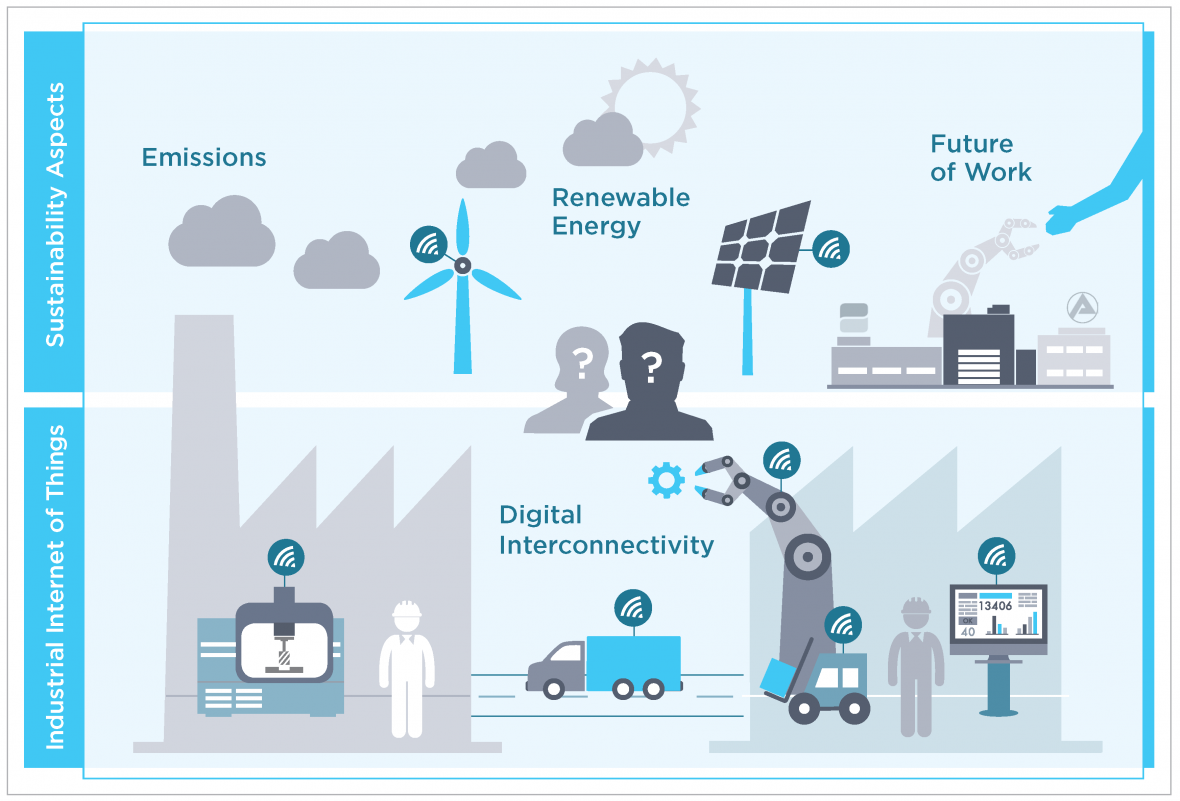UNIDO Report Explores Potential of Industry 4.0 to Accelerate Transition towards Sustainable Energies
30.08.2017


A new report launched today by the United Nations Industrial Development Organization (UNIDO) looks into the opportunities and challenges of the Fourth Industrial Revolution, also referred to as Industry 4.0, to accelerate the transition towards sustainable energy. The report, which was produced in collaboration with the German Institute for Advanced Sustainability Studies (IASS) and the Indonesian think tank Sustainability & Resilience.Co (su-re.co), also provides key recommendations for future policies.
Industry 4.0 promises improved methods of production and business models through new technologies, including automation, augmented reality, and the Internet of Things, which could accelerate the deployment of renewable energy in manufacturing, reduce carbon emissions, optimize energy use, and enhance productivity and cost savings. This, in turn, could help tackle major global challenges, such as climate change, the lack of access to clean energy, etc. However, Industry 4.0 also presents challenges that relate to countries’ ability to efficiently and rapidly introduce new technologies in manufacturing processes, and could eventually result in greater inequality. The conditions to be met to ensure that all countries can benefit from the potential of Industry 4.0 to advance sustainable energy are explored in the report.
“We should make sure to shape the future of Industry 4.0 in a sustainable way, so that developed and developing countries can transform their industries towards a more sustainable future,” said Grischa Beier, who leads a project on “Digitalization and Impacts on Sustainability” at the IASS.
Pathways towards sustainable energy
The report looks into two development pathways towards more sustainable energy: developed countries could retrofit their systems to improve energy efficiency, while developing countries could industrialize in a more sustainable manner by jumping from older technologies to very modern ones, such as smart factories and decentralized microgrids. The report argues that the revolution needs to be supported by policies that foster the transition to sustainable energy systems. At the same time, the report makes concrete policy recommendations.
“UNIDO can provide policy advice to governments for setting up suitable framework conditions,” said UNIDO Senior Programme Management Expert Takeshi Nagasawa. “As a knowledge-sharing and project development platform, UNIDO can help capitalize on the sustainable energy aspects of Industry 4.0 by transforming systems or leapfrog technology waves.”
Digitizing industry in tune with the Sustainable Development Goals
The report further points out that by enhancing the use of information and communications technologies and increasing Internet access, there could be a multiplier effect that would contribute to achieving different Sustainable Development Goals (SDGs). In particular, advancing SDG 9 on industry, innovation and infrastructure could help tackle SDG 7 on affordable and clean energy and SDG 13 on climate action.
Read the Report’s executive summary here.
Read the full Report here.
